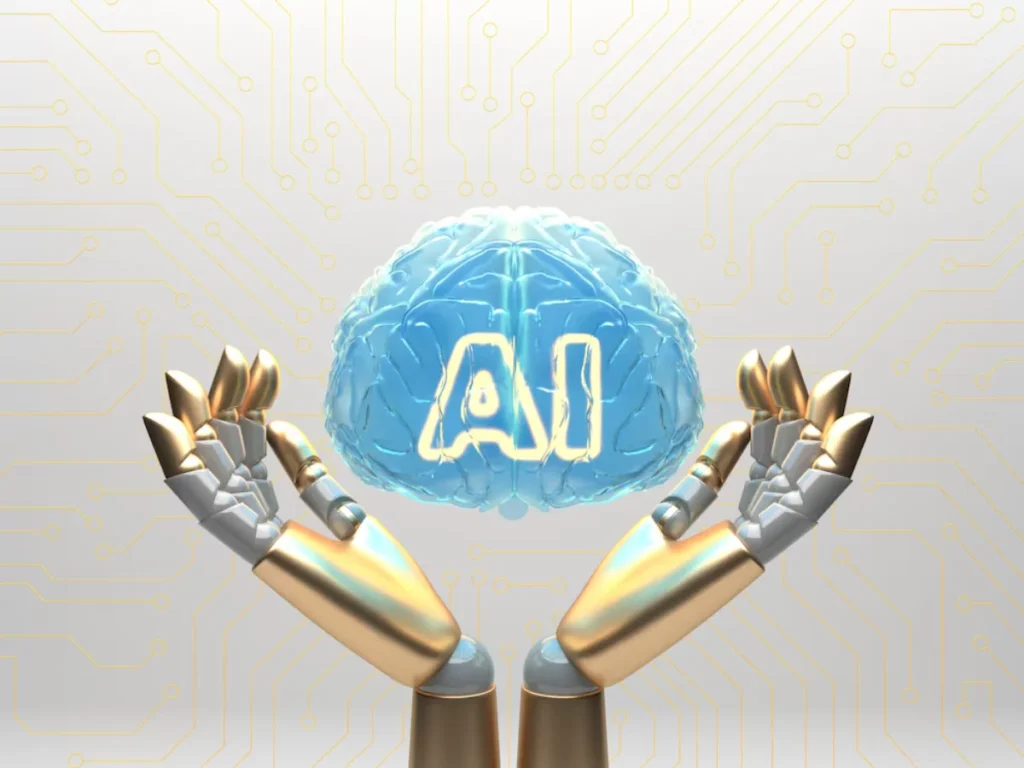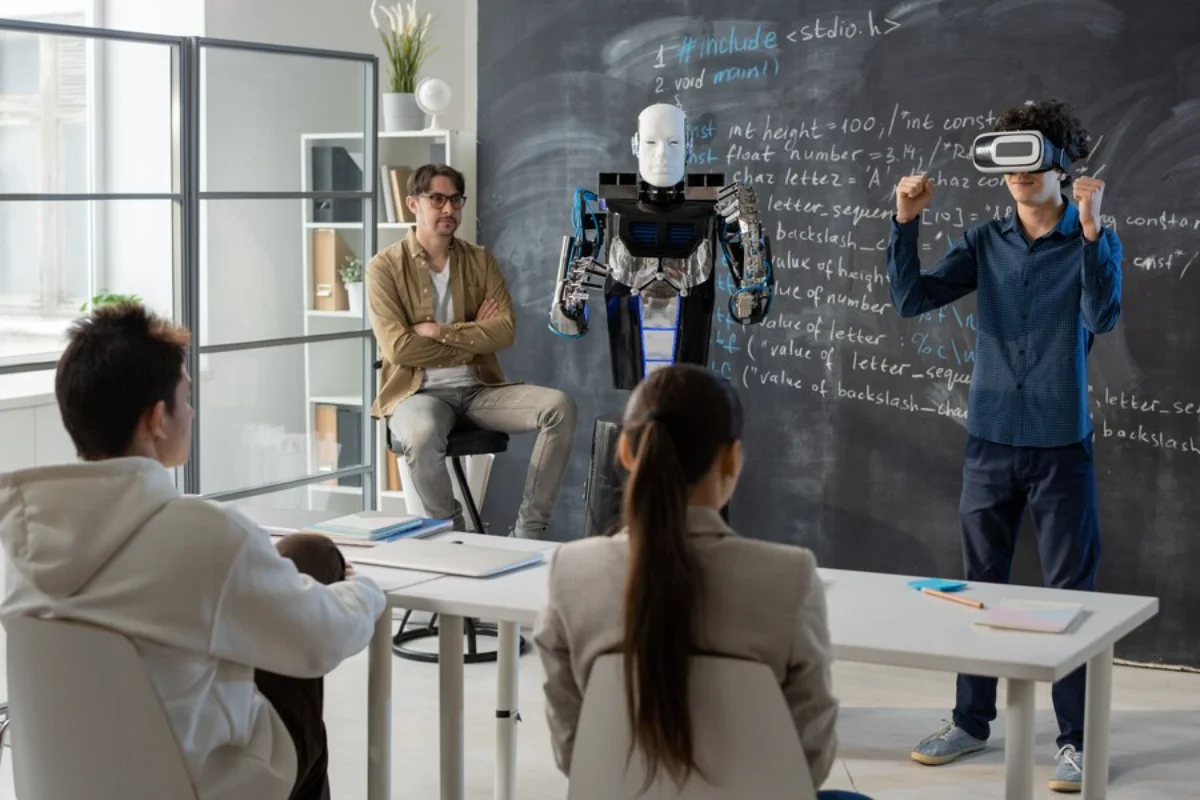The Technology Blog

The Risks & Rewards of AI in Society
Artificial intelligence is transforming the way we live, work, and interact with technology. From healthcare and finance to automation and communication, AI is revolutionising numerous industries. However, while AI brings many advantages, it also poses significant risks. Understanding both the AI risks and AI benefits is crucial for shaping policies and ensuring that the impact of artificial intelligence remains beneficial for society.
The UK leads in AI innovation. It is ahead in adopting and regulating AI technologies. AI is evolving. It’s important to balance its benefits and risks. This balance is key for sustainable progress. This article looks at the benefits and risks of AI. It examines its impact on different industries, jobs, security, and ethics. It also discusses how policymakers and businesses can manage AI’s growth responsibly.

The Benefits of AI in Society
AI in Healthcare
One of the most significant AI benefits is its impact on healthcare. AI-powered diagnostics, robotic-assisted surgery, and predictive analytics are improving patient outcomes. AI algorithms can find diseases like cancer early. This allows for timely treatment. The NHS in the UK is using AI tools. These tools aim to improve patient care, cut waiting times, and boost medical research.
AI chatbots and virtual assistants are changing mental health care. They provide quick support and ease the load on therapists. AI-powered CBT tools offer easy and low-cost help for people with anxiety and depression. AI-powered remote patient monitoring eases the load on healthcare workers. It also helps people get proactive medical care.
AI is helping in drug development. It speeds up drug discovery and personalizes medicine. Machine learning models are analyzing genetic data. They tailor treatments for each patient. This helps improve success rates in managing chronic diseases.
AI in Business and Economy
The impact of artificial intelligence on businesses is profound. AI-driven automation is increasing efficiency and reducing operational costs. In sectors like finance, AI algorithms predict market trends, detect fraudulent transactions, and optimise investment strategies. UK companies are using AI more and more. It helps them streamline logistics, improve customer experiences, and make better decisions.
AI is boosting economic growth. It creates new jobs in AI development, machine learning, and data science. AI raises worries about job loss, but it also boosts the need for skilled workers. These professionals are needed to develop, implement, and maintain AI systems. The UK government is investing in AI research and education. This helps workers gain skills for the future. As a result, it can lessen the negative effects of automation on jobs.
Retail and e-commerce businesses benefit from AI in several ways. They use personalised recommendations to enhance shopping experiences. Automated inventory management helps keep stock in check. AI-driven customer service improves support and engagement. Chatbots and virtual assistants enhance customer interactions, leading to higher engagement and satisfaction.
AI and Environmental Sustainability
AI is playing a crucial role in combating climate change and promoting sustainability. AI-powered smart grids enhance energy efficiency, reducing waste and optimising power distribution. Machine learning algorithms can predict weather patterns, helping policymakers plan for natural disasters. AI-driven precision farming boosts crop yields. It also cuts down on water use and pesticide use.
In the UK, AI helps create sustainable transport solutions. This includes AI traffic management systems and self-driving electric cars. These innovations cut carbon emissions and boost urban mobility. AI waste management systems help cities go green. They improve recycling and cut down on landfill waste.

The Risks of AI in Society
Data Privacy and Security Concerns
One of the most pressing AI risks is the issue of data privacy and security. AI systems rely on vast amounts of data to function effectively. However, concerns arise regarding how this data is collected, stored, and used. Personal info can be misused. This can lead to identity theft, surveillance, and privacy breaches.
The UK’s General Data Protection Regulation (GDPR) is key. It makes sure AI technologies follow strict data protection rules. However, as AI evolves, further regulatory measures may be required to keep pace with emerging threats. AI-powered cyberattacks are getting smarter. So, it’s crucial to use AI-driven security measures to fight back against these threats.
AI and Job Displacement
AI is creating new job opportunities, but it is also replacing many traditional roles. This is especially true in sectors that depend on routine tasks. Automation is taking over jobs in manufacturing, retail, and customer service. This change is causing job losses and increasing economic inequality. The impact of artificial intelligence on employment is a growing concern, requiring policymakers to invest in reskilling and upskilling initiatives.
In the UK, both the government and private companies are working on workforce development. They aim to help employees move into AI-driven industries. Education and training in AI fields are key to preparing the future workforce. AI can enhance human work instead of replacing it. Businesses should explore this idea to create a balanced workforce transformation.
Ethical and Bias Issues in AI
AI algorithms are only as unbiased as the data they are trained on. If AI models are built using biased data, they can perpetuate and even amplify existing societal inequalities. Biased AI in hiring can discriminate against specific groups. This leads to unfair hiring practices.
The UK government is working on clear AI rules. They want AI systems to be designed ethically and checked often to reduce bias and discrimination. Companies should run fairness checks and use diverse datasets for AI model training.
AI in Warfare and Surveillance
The use of AI in military applications and surveillance poses serious ethical concerns. AI-powered autonomous weapons raise questions about accountability, decision-making, and potential misuse in conflicts. Additionally, mass surveillance through facial recognition and AI-driven monitoring systems could infringe on civil liberties.
In the UK, ethical AI development is a key focus, with ongoing discussions about how AI should be regulated to prevent misuse while maintaining security and public safety. Policymakers are advocating for responsible AI use in law enforcement while ensuring transparency and legal safeguards to prevent authoritarian misuse.

The Future of AI: Striking a Balance
Responsible AI Development
To maximise the AI benefits while mitigating AI risks, responsible AI development must be prioritised. Ethical AI frameworks, transparency in AI decision-making, and stringent regulations will ensure that AI serves humanity rather than poses a threat.
Collaboration Between Government and Industry
The UK government is actively collaborating with AI researchers, industry leaders, and policymakers to establish regulations that promote innovation while ensuring safety. Public-private partnerships are essential in shaping AI policies that protect citizens while fostering AI-driven economic growth.
AI Education and Public Awareness
Increasing AI literacy among the general public is vital for ensuring informed discussions about the impact of artificial intelligence. Encouraging AI education in schools and universities will prepare future generations for an AI-driven world. Promoting AI awareness through public engagement initiatives will help demystify AI technologies and foster responsible adoption.
AI: Balancing Innovation with Responsibility for a Better Future
The impact of artificial intelligence on society is undeniable, offering both incredible opportunities and significant risks. While AI has the potential to revolutionise healthcare, business, and sustainability, concerns about data privacy, job displacement, and ethical issues must be addressed. In the UK, balancing AI benefits with AI risks through responsible development, regulation, and education will be crucial for ensuring that AI serves humanity in a positive and sustainable manner. By fostering a proactive approach to AI governance, society can harness the full potential of AI while mitigating its dangers for a better future.









